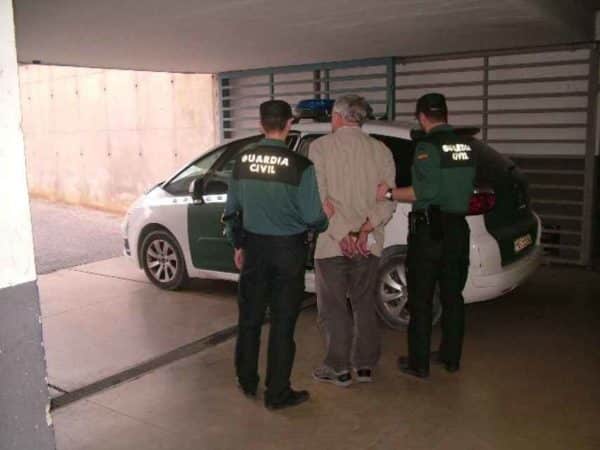Mark Frost, formerly Andrew Tracey, was crowned as the paedophile ‘king of terror’ by the Daily Telegraph. He was just one of dozens of British criminals who thought that by moving to Spain he could find a safe haven so, in November 2015, he travelled to Santa Pola where he thought that, as a retired pensioner from the UK, he would not attract attention in this quiet coastal town of almost 40,000 inhabitants.
However, the UK National Crime Agency defined him as one of the worst paedophiles they have ever encountered, so he remained at the very top of their radar and in 2016, after an international police operation, he was arrested by the Spanish Civil Guard and handed over to the UK authorities.
In 2013 he had previously been arrested by Thai police, but he managed to escape jail, flee the country and avoid possible conviction. In the hands of the British authorities, however, there was no such opportunity and in 2017 he was sentenced by a British judge to 13 life sentences.
During his trial, Frost admitted to 45 offenses against at least 30 minors, that he had carried out over a 25-year period, but as reported by The Guardian Newspaper, only 11 of his victims were identified: two British victims that he had assaulted in Worcestershire in the 1980s and 1990s, according to the BBC, and nine Thai children that he attacked between 2009 and 2012. As it turned out, this was only the tip of the iceberg.
Even after he was imprisoned the National Crime Agency (NCA), believing there were far more crimes still to be uncovered, made a public appeal to encourage victims to come forward from his time as a boy scout leader and a schoolteacher between 1970 and 1990 and on August 19, 2022, a Westminster court issued details of a further 24 offenses of child rape, child abuse and child pornography.
However, in a decision dated May 24 of this year, Spain’s Criminal Court, the Audiencia Nacional, declined to approve the prosecution of Frost for these crimes, concluding that the 1973 Penal Code in force when the crimes were committed gave them a statute of limitations of a maximum of 15 years in the most serious cases, and which cannot be applied retroactively. The time span in which they could have been prosecuted has therefore expired, according to court’s resolution, which is supported by the Public Prosecutor’s Office. In the UK, there is no such statute of limitations for these offenses.
Judge Mark Lucraft QC, who presided over the 2017 trial, said Frost, now aged 76, must spend a minimum of 16 years behind bars and only be able to apply for parole when he is 86.






